Search Images
Browse Content (p. 1643)
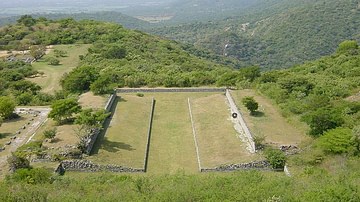
Image
Ballcourt, Xochicalco
The ballcourt of Xochicalco, central Mexico. Constructed prior to 900 CE.

Image
Sargon II Wall Relief
Sargon II (r. 722-705 BCE), one of the most important kings of the Neo-Assyrian Empire and founder of the Sargonid Dynasty, with a dignitary on a low-relief from the left wall of the palace of Sargon II at Dur Sharrukin in Assyria, now Khorsabad...
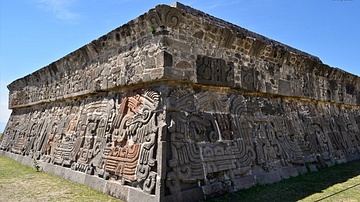
Image
Pyramid of the Feathered Serpent, Xochicalco
A detail of the pyramid platform known as the 'Pyramid of the Feathered Serpent', Xochicalco, central Mexico. The four walls of the structure have relief carvings which include large feathered serpents and they form a four-sided open enclosure...

Image
Julius Caesar
Bronze sculpture of Julius Caesar in Rimini, Italy. 1933 CE.
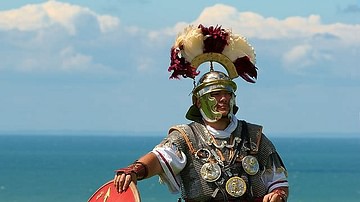
Image
Centurion
A re-enactor wearing a reproduction of a Roman centurion uniform. Typical features are the transverse crest, greaves and medallion decorations.

Image
CocoaTree
Fruits hanging on Theobroma cacao, better known as the cocoa-tree. Chocholate was a prized food in ancient Mesoamerica.
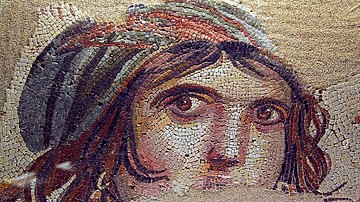
Image
Mosaic of a Gypsy Girl
Roman mosaic of a gypsy girl, 2nd century CE?, Gaziantep Zeugma, Turkey.
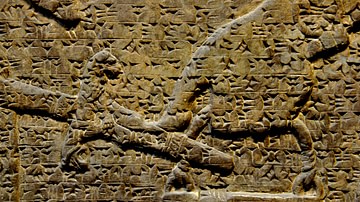
Image
Standard Inscription of King Ashurnasirpal II
A close-up of the "Standard Inscription" of the Assyrian king Ashurnasirpal II, from the North-West palace at Nimrud (ancient Kalhu; biblical Calah), northern Mesopotamia, modern-day Iraq, Neo-Assyrian Empire, 865-860 BCE. The British Museum...
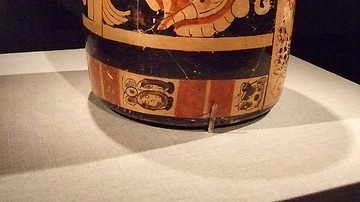
Image
Chocolate Beaker
Vase for pouring chocolate, earthenware, Belize, Late Classic Maya, Altun-Ha style. (De Young Museum of Fine Arts, San Francisco)

Image
Shedu-Lamassu from the Palace of Tukulti-Ninurta I
Shedu-Lamassu (meaning a male lamassu) from Tukulti-Ninurta's palace, c. 1225 BCE. Vorderasiatisches Museum (Pergamon Museum), Berlin